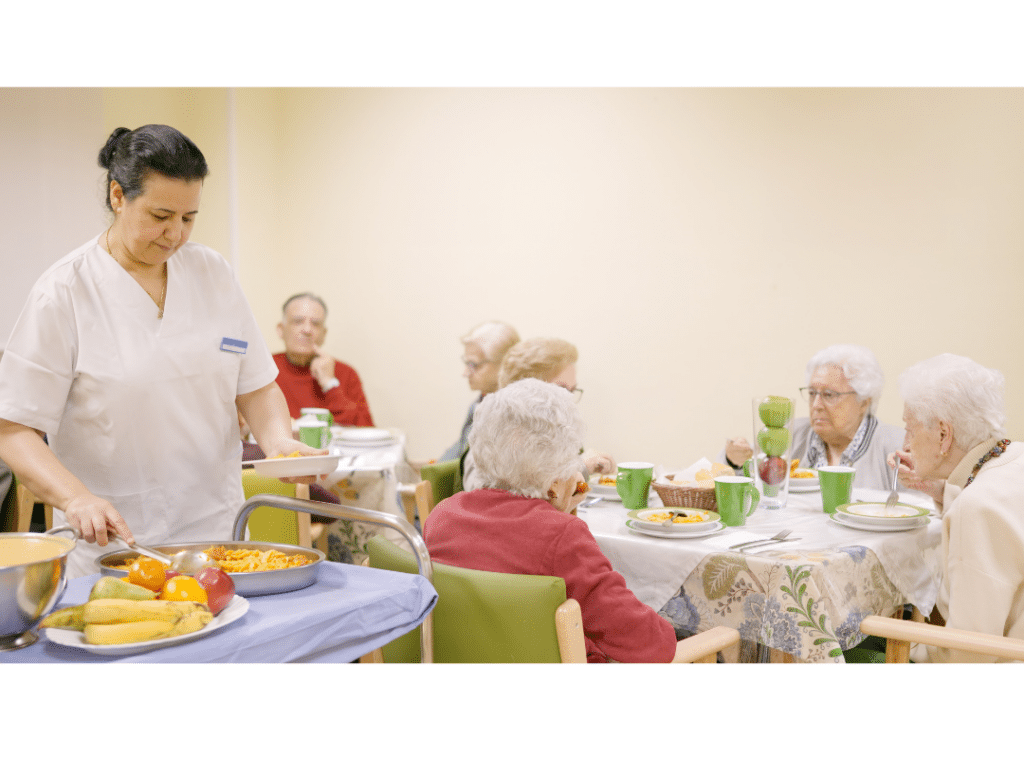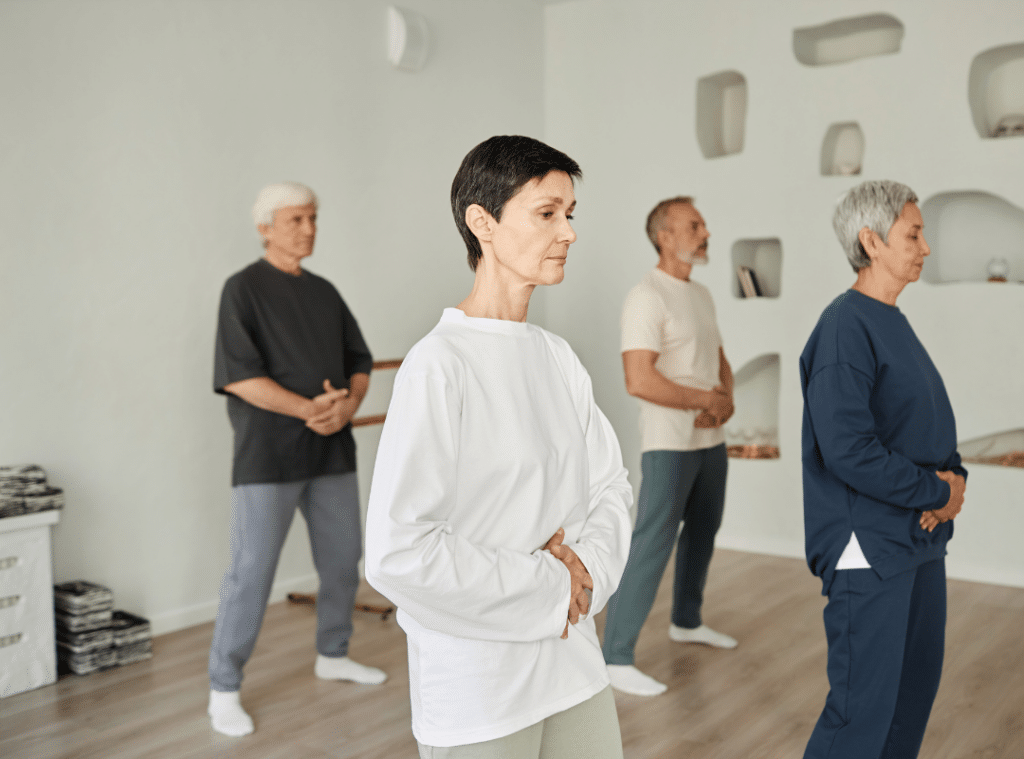Health and Wellness Programs for Seniors That Enrich Life
Living a long, vibrant life requires more than just good luck—it demands intentional daily habits and support systems. At Westmont of Chico, embracing Health and Wellness Programs for Seniors helps older adults thrive physically, mentally, and socially. These programs are carefully designed to boost quality of life by integrating activities that nourish both the body and mind.
From senior wellness program options that focus on strength and balance to engaging brain games and stress-relief strategies, Westmont of Chico provides tools and opportunities that promote holistic health. Whether you’re just starting or looking for senior exercise classes near you for beginners, these programs meet you where you are and help guide you to where you want to be. Discover how integrating wellness into your routine can transform your senior years into your best years.
Visit Westmont of Chico to explore all the wellness programs available.
Why Physical Activity Is the Cornerstone of Senior Health
Physical wellness is a fundamental part of aging gracefully. Incorporating movement through senior wellness program offerings strengthens muscles, improves flexibility, and helps reduce the risk of falls. Whether you’re walking, stretching, or lifting light weights, physical activity supports heart health, balance, and even mental clarity.
Many seniors wonder where to start. Free exercise classes for seniors and free senior exercise classes near you are often offered through local senior centers, libraries, or community recreation programs. Additionally, the YMCA free programs for seniors near you provide excellent, no-cost fitness opportunities that are tailored to different ability levels. From chair yoga to water aerobics, there’s something for everyone.
Westmont of Chico also offers strength and balance workouts designed specifically for older adults. These help maintain independence and mobility, critical components of healthy aging.
Boosting Brain Power Through Mental Fitness
Just as we train our bodies, it’s equally important to train our minds. Cognitive decline can be slowed—and even improved—with the right approach. Brain-training exercises like word puzzles, Sudoku, memory cards, or strategy games can keep your mind sharp and alert. Daily cognitive challenges can be fun and empowering.
Health and Wellness Programs for Seniors include brain-focused activities that promote mental agility. For beginners, senior wellness program schedules may include gentle memory exercises and guided discussions that stimulate thinking. Westmont of Chico enhances this with brain game suggestions that are both enjoyable and enriching.
Additionally, combining mental fitness with physical movement—like learning a new dance or practicing tai chi—can offer powerful cross-training for the mind and body. Research shows that active minds tend to lead to longer, more fulfilling lives.

The Importance of Social Connection for Senior Wellness
Staying socially active is one of the most impactful ways to support mental and emotional health. Seniors who consistently engage with others experience reduced rates of depression, improved cognitive health, and even longer lifespans. That’s why social engagement is a key part of every senior wellness program.
Group activities such as book clubs, gardening classes, and hobby circles allow seniors to bond over shared interests. Participating in senior exercise classes near you for beginners not only supports physical health but also fosters friendships. Many free senior exercise classes near you integrate social elements like group walks or partner stretches, further enhancing engagement.
Westmont of Chico offers a strong sense of community where relationships flourish. Regular interaction is encouraged through group meals, events, and outings. In fact, studies show that maintaining a robust social network can help reduce the risk of Alzheimer’s and other forms of dementia.
Managing Stress Through Daily Mindfulness Practices
Stress doesn’t just affect the mind—it impacts your entire body. Seniors dealing with chronic stress may experience sleep issues, high blood pressure, and reduced immune function. Managing stress is essential to any health and wellness program for seniors.
Mindfulness techniques like deep breathing, meditation, and gentle stretching can lower cortisol levels and increase emotional resilience. For those new to these practices, many YMCA free programs for seniors near you include beginner-friendly mindfulness and yoga classes. Some programs even offer virtual or hybrid classes to make participation easier.
At Westmont of Chico, daily routines often incorporate calming activities such as guided meditation, journaling, and nature walks. Progressive muscle relaxation is another technique used to help seniors relax both mentally and physically.

Leveraging Community Resources and Local Support
Access to reliable resources is crucial in maintaining independence and wellness in later life. Community programs provide affordable and often free exercise classes for seniors to encourage active participation in wellness. These programs are vital for seniors who may be on fixed incomes or unsure where to start.
Local centers and non-profits frequently organize senior exercise classes near you for beginners, where trained instructors provide modifications tailored to mobility levels. YMCA free programs for seniors near you are also widely accessible and include not only fitness but educational workshops, health screenings, and social mixers.
Westmont of Chico builds upon these resources by offering additional support through its emotional and social wellness programs. Residents benefit from a collaborative care approach that integrates emotional, physical, and social health strategies in one location.
- SilverSneakers | A nationwide fitness program offering free gym access and exercise classes for older adults.
- National Institute on Aging – Exercise and Physical Activity | Tips and resources on how to stay active safely and effectively.
Start Your Journey to Better Health Today
Aging well isn’t about luck—it’s about making consistent, informed choices. With Health and Wellness Programs for Seniors at Westmont of Chico, you’re not just participating in activities; you’re investing in a lifestyle that prioritizes vitality, connection, and joy. From accessible free senior exercise classes near you to targeted programs like the senior wellness program, these offerings empower you to live fully and independently.
Whether you’re exploring your first senior exercise classes near you for beginners or looking for ways to stay sharp and connected, there’s a supportive community ready to help you succeed. Take the first step by scheduling a tour or calling 530-767-3886 to learn more about how Westmont of Chico can be part of your wellness journey.
How Do The Costs Of Moving Into A Quality Senior Care Community Compare With The Costs Of Staying At Home?Compare The Costs of Senior Living vs Staying at Home
Frequently Asked Questions
What is a senior wellness program?
A senior wellness program is a structured set of activities and services designed to support the physical, mental, and emotional health of older adults. These programs often include exercise classes, nutrition education, social engagement opportunities, and regular health screenings. The goal is to help seniors maintain independence, manage chronic conditions, and enhance overall quality of life. Senior centers, assisted living communities, and healthcare organizations commonly offer wellness programs.
What is a program that provides health benefits to senior citizens?
Programs like Medicare, Medicaid, and local senior services often provide essential health benefits to older adults. These benefits can include doctor visits, prescription drug coverage, preventive care, and wellness initiatives like screenings or fitness classes. Some senior living communities also offer in-house health programs tailored to the needs of their residents. Eligibility is determined by age, income, and specific health conditions.
What are examples of health promotion for older adults?
Health promotion for older adults can include activities like balance training, chronic disease management workshops, and preventive health screenings. Educational seminars on nutrition, stress reduction, and medication safety are also common. Programs often focus on preventing falls, maintaining mobility, and promoting social interaction. Community health fairs and wellness challenges are great examples of engaging promotion strategies.
Are there any free exercise programs for seniors?
Yes, many communities offer free exercise programs specifically for seniors. Organizations like SilverSneakers and local senior centers provide access to group fitness classes, walking clubs, and yoga sessions. Some healthcare providers also partner with community groups to deliver free or low-cost fitness options. These programs help improve mobility, strength, and cardiovascular health without added financial strain.








